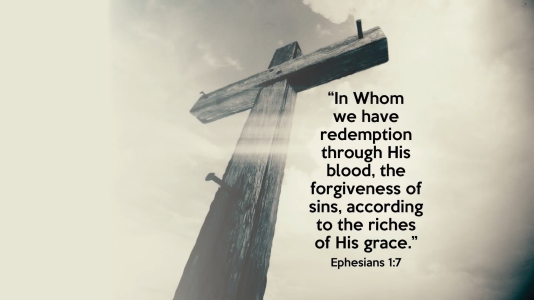Why The Triune GodHead Is Correct!
+
A
Final Conclusion and Plea after all debates are done?
Due to a daily reading Gem, an Update Of The Following:
13) God Almighty Is The
Judge Of All!
"And thinkest thou this, O man, that judgest them which do such things,
and doest the same, that thou shalt escape The Judgment Of God?…
against The Day Of Wrath and Revelation Of The Righteous Judgment Of God!"
(Romans 2:3, 5 AV)
...God The Judge of all!...God Will Judge!… (Hebrews 12:23, 13:4 AV)
...Strong Is The Lord God Who Judges!... (Revelation 18:8 AV)
-----
Additional Gems!:
"And I heard the angel of the waters say, Thou Art Righteous,
O Lord, Which Art, and Wast, and Shalt Be, because Thou Hast Judged thus...
And I heard another out of the altar say, Even so, Lord God Almighty,
True and Righteous Are Thy Judgments..." (Revelation 16:5, 7 AV)
---------
Are These not Referring To and In Complete Harmony With:
Jesus Christ Is God, Because
All The Verses In The Holy Bible, That Talk About God Being
The Judge, Must
Refer To Jesus Christ, Since
He Alone Judges! The Father Judges
no man!
(John 5:22 AV):
The Father Has Committed All Judgment To His SON, The Lord Jesus Christ!!
Why?
"That All men should honour The SON, even as they honour The Father. He that
honoureth not The SON honoureth not The Father Who Hath Sent Him!"
(John 5:23 AV)
JW's, SDA's, Unitarians, And All Dear
Precious Readers, do you Really
honor The SON?
Only
God Almighty Is The
Righteous Judge =
The Lord Jesus Christ!
"I exhort therefore, that, first of all, supplications, prayers, intercessions,
and giving of thanks, be made for all men" (1 Timothy 2:1 AV)
We continue to do this, and have One
Final Plea:
Precious friend(s) Will you Now... Completely 100% “trust” (believe, place faith in) God, The
Precious Redeemer, The Lord Jesus Christ, His Precious
BLOOD, And His Resurrection!!
*
to “Receive Forgiveness Of All your sins”? and go to The Judgment Seat Of Christ
for “rewards,” (1 Corinthians 3:8-15 AV)
OR... ?...will you die in UNbelief (trusting in “religion, religious works, men's false
teachings, or Any “
Other deeds” Other Than:
The Lord Jesus Christ, His
BLOOD, And His Resurrection!
*,
and go to:
The Great White Throne Judgment Of
God Almighty [
The Lord Jesus Christ ]
and perish in Eternal Condemnation? (Revelation 20:11-15 AV)
Precious friend(s), Are you “religious” or is your “sin
Forgiven,"
so that you Are
Prepared for
God's Righteous Judgment?
 Biblically Harmonious With: Redemption Is Through "God's Own BLOOD!"
Biblically Harmonious With: Redemption Is Through "God's Own BLOOD!" (Acts 20:28 AV):
* God's Simple Will!
After you have performed
This, Then Please
Continue In God's Amazing Grace With:
↓ ↓ ↓ ↓ ↓ ↓ ↓ ↓ ↓

